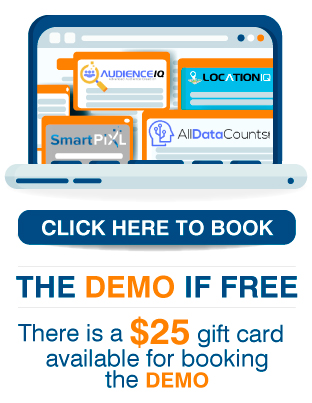A Guide for Marketing Agencies to Optimize Campaign Selection
In digital marketing, selecting the right campaign is crucial for driving results and achieving client objectives. The vast array of digital marketing options and channels can often feel overwhelming, and what works for one company or industry may not work for another. Marketing agencies are often faced with the daunting task of navigating various campaign types to identify the most effective strategies for their clients. The secret to choosing the right strategy is understanding the client’s offerings and customers to aid you in developing a customized strategy. We’ve compiled a comprehensive guide to help marketing agencies choose the best campaigns and maximize their impact. Understanding Different Types of Marketing Campaigns: Marketing campaigns come in various forms, each tailored to achieve specific objectives and target audiences. The options are vast and diverse, from traditional print and broadcast campaigns to digital channels such as social media, email marketing, and search engine optimization (SEO). Understanding the nuances of each campaign type is essential for crafting tailored strategies that resonate with target audiences and drive desired outcomes. Assessing Client Needs and Objectives: Before diving into campaign selection, marketing agencies must first understand their client’s unique needs, objectives, and target demographics. Conducting thorough client consultations and needs assessments helps agencies gain valuable insights into client expectations, budget constraints, and desired outcomes. By aligning campaign strategies with client goals, agencies can tailor their approach to deliver maximum value and achieve measurable results. Matching Campaign Types to Client Goals: Once client objectives are established, marketing agencies can begin the process of matching campaign types to specific goals and target audiences. Visual-centric campaigns such as social media ads and influencer partnerships may be ideal for clients seeking brand awareness and exposure. Conversely, clients focused on lead generation and conversions may benefit from targeted email marketing campaigns or pay-per-click (PPC) advertising. Analyzing Data and Performance Metrics: Data-driven decision-making is paramount in the realm of marketing campaigns. Marketing agencies must continually monitor and analyze campaign performance metrics to gauge effectiveness and make informed optimizations. Key performance indicators (KPIs) such as click-through rates, conversion rates, and return on investment (ROI) provide valuable insights into campaign success and areas for improvement. Agencies can refine their strategies and optimize campaign performance by leveraging data analytics tools and platforms. Staying Agile and Adaptable: In today’s fast-paced digital landscape, agility and adaptability are essential qualities for marketing agencies. As market trends evolve and consumer behaviors shift, agencies must remain flexible and proactive in adjusting campaign strategies accordingly. Embracing innovation and experimentation allows agencies to stay ahead of the curve and deliver impactful campaigns that resonate with target audiences. Choosing the right marketing campaign is a strategic endeavor that requires careful consideration, data-driven insights, and a deep understanding of client objectives. By aligning campaign types with client goals, leveraging data analytics, and staying agile in response to market dynamics, marketing agencies can maximize the impact of their campaigns and drive tangible results for their clients. With a proactive approach to campaign selection, agencies can position themselves as trusted partners in achieving client success in an ever-evolving digital landscape.Campaign Selection FAQ for Marketing Agencies
Understanding the client’s offerings and customer base is paramount. This involves a deep dive into their business goals, target audience, and existing marketing efforts. A tailored strategy emerges from this understanding, ensuring alignment with the client’s specific needs and maximizing the campaign’s impact.
Marketing campaigns are diverse, ranging from traditional approaches like print and broadcast to digital strategies like social media, email marketing, and SEO. Each type caters to specific objectives and audiences. For instance, visual-centric campaigns using social media ads or influencer partnerships may suit clients seeking brand awareness, while targeted email campaigns or pay-per-click (PPC) advertising might benefit those focused on lead generation and conversions.
Thorough client consultations and needs assessments are crucial. These interactions provide valuable insights into the client’s expectations, budgetary constraints, and desired outcomes. Open communication and active listening help agencies grasp the client’s vision and translate it into a tangible marketing strategy.
Matching campaign types to specific goals and target audiences is key. For example, if a client aims to increase brand visibility, a social media campaign focusing on engagement and reach would be appropriate. If lead generation is the primary objective, a targeted email campaign with compelling calls to action would be more effective.
Data analysis is crucial for informed decision-making. Agencies must continuously monitor key performance indicators (KPIs) such as click-through rates, conversion rates, and return on investment (ROI). These metrics provide insights into campaign effectiveness and highlight areas for improvement, allowing for data-driven adjustments and optimizations.
Various data analytics tools and platforms are available, ranging from free options like Google Analytics to more specialized paid tools. The choice depends on the complexity of the campaign and the depth of analysis required.
The digital landscape is constantly evolving, with market trends and consumer behaviors shifting rapidly. Agencies must remain flexible and adapt their strategies to stay relevant and effective. Embracing innovation and testing new approaches ensures campaigns resonate with target audiences despite these changes.
By adopting a proactive approach to campaign selection, consistently analyzing data, and remaining adaptable to market dynamics, agencies position themselves as trusted partners invested in their clients’ success. Open communication, transparent reporting, and a genuine commitment to achieving client objectives build strong relationships and foster long-term partnerships.


